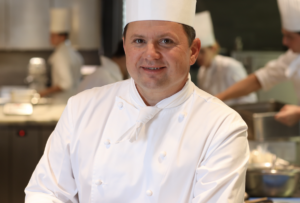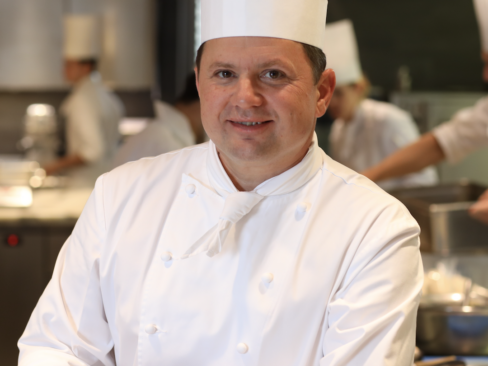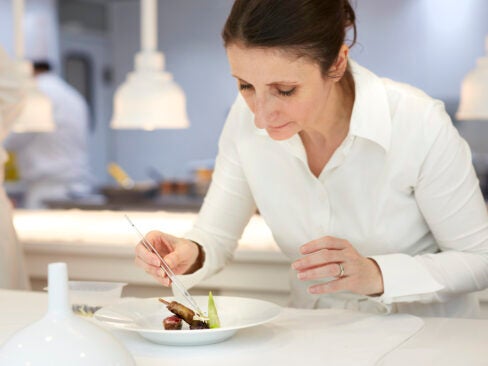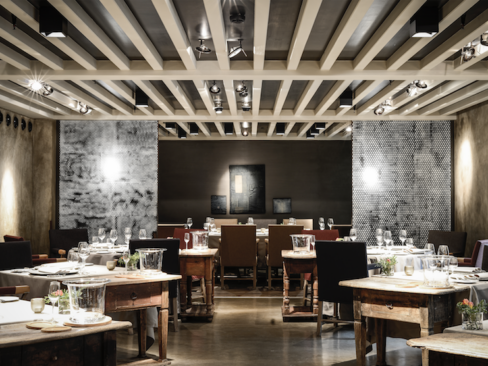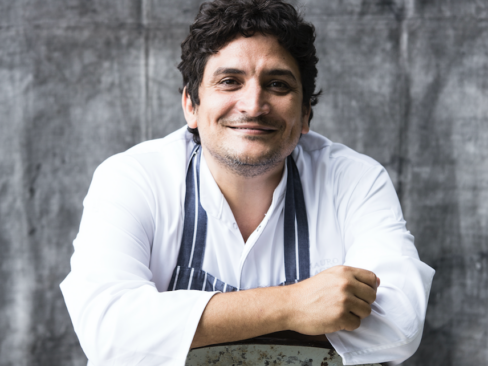by Tina Nielsen
Nominated for Young Chef of the Year, Sean Brock, the man behind Husk restaurants in Charleston and Nashville, describes himself as a chef and a preservationist. With a keen interest in heirloom ingredients, he is firmly focused on pushing southern cuisine forward while honouring the culinary traditions of the region .
.
“Cuisine is a very big part of culture,” he explains. “That puts more pressure on me to preserve it, document it and celebrate it and hopefully push it forward and keep it moving. That is my goal every day.”
The lack of mentoring by a Michelin starred chef or training in culinary hotspots like New York City or France has not stopped Brock from carving out a stellar career as a chef. “I have only ever cooked in the south. I started cooking when I was 16 and by the time I was 20, I was the sous chef running a five star restaurant before I was old enough to drink alcohol,” he says. “I had to be a manager and a responsible chef at a very young age when I should have been training.”
Arriving in Charleston to take over legendary restaurant McCrady’s in 2006, Brock and his partners later went on to open Husk restaurant in 2010. Another Husk followed in Nashville, Tennessee a year and a half ago. The recipient of several awards and recognitions, including the James Beard award, which he won in 2010, he says awards help him to improve.
“They make you realise you are in a fortunate situation and that makes you work harder to show your appreciation. On the other side of things it puts a great deal on pressure on you to live up to it, which also makes you work harder,” he says.
Being recognised by members of the dining public rather than experts is special, says Brock. “One of the reasons we work so hard is that we are cooking for everyone; to us it doesn’t matter who is in the seat. Our job is to wake up every day and do the best we can to provide a great memory for someone,” he explains.
“When the recognition comes from someone who doesn’t critique restaurants for a living then it is a pretty special feeling because they are there for a different reason – to enjoy themselves and see what a restaurant is about. When people have a good time that makes me very happy.”
He describes his cuisine as a modern interpretation of Southern food. “It is a combination of looking forward while looking to the past and that is what I believe the southern food to be,” he says. “There is a deep honour and respect for the past but also looking forward because that was the spirit of the cuisine when it was formed.”
Central to his cooking is the use of heirloom ingredients and he has brought back seeds that are not often used anymore. They just taste better, he says. “They are more delicious and one of our responsibilities as chefs is to chase deliciousness and share it with guests,” he says. But it goes beyond the flavour; for Brock those seeds are symbolic. “They could tell you a story about a family, a region or a particular cuisine. They are bits of wisdom and if we don’t continue to grow and cook them and eat them and talk about them, all of those stories and lessons disappear and that is not how you preserve a culture or move a culture forward. That is how a culture dwindles,” he says.
He describes the tension between the technical and the creative as central to the cooking process. “You have to understand the technical aspects, you have to be a craftsman and geek out about technique, precision and discipline. On the other side you need to be this flowing creative artist with spontaneity and freedom and creativity,” he says. “I am interested in precision and in innovation, but I am also very interested in the cooking of 18th century and the 19th century. I am interested in art so the aesthetics of plating food is very important to me as is creativity, being whimsical and having fun.”
Inspiration is found in everyday experiences whether that is a visit to a farmers’ market or an international trip. “One of the biggest lessons I have learnt is to really pay attention to what is happening and slow down and think about it,” he says. “Every piece of food I eat will influence something along the way. What you shoot for is this personal development of your own cuisine. It is a combination of what is in your blood and your DNA and of your experiences as an adult.”
With the McCrady’s and the two Husk restaurants, he has plenty to keep him busy and he has no plans to open more, except for the odd “fun project”. These include Minero the restaurant based on street food of Mexico City he opened last year.
Ultimately, his aim goes beyond the cooking. He wants to influence the way people think about and eat food. “I want people to be as passionate I am about food, my focus just happens to be on where I am from but overall it is about food,” he says. “It is the most beautiful way to bring people together share experiences with each other. It needs to be good food, clean food, nutritious food; it needs to be the right food and cooked with care.”





